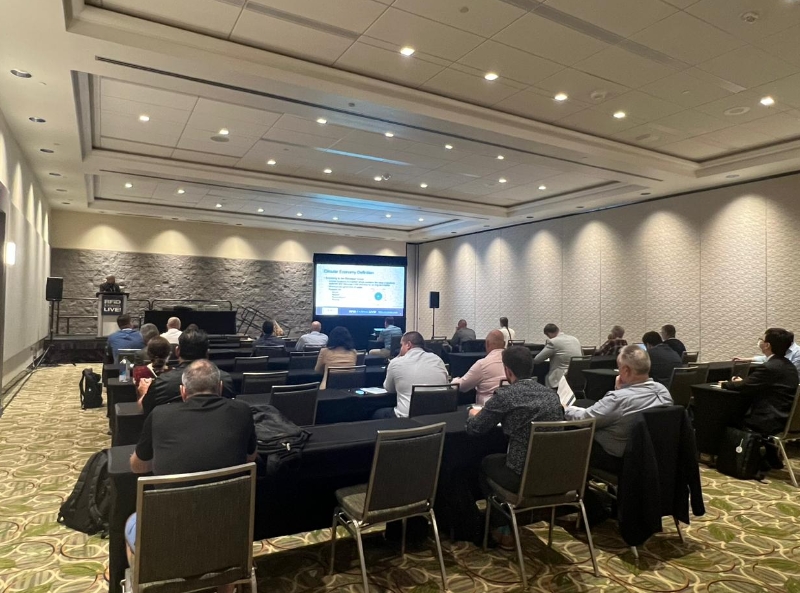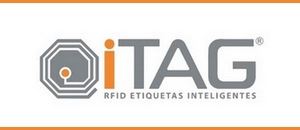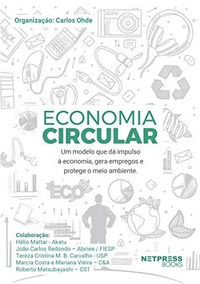Edson Perin
The world of packaging will not be the same after the Digital Product Passport (DPP), determined by the European Union (EU), in 2022, and which comes into force as of 2024. Product” – which is becoming internationally known by the acronym DPP – will be a strong stimulus for the use of Internet of Packaging (IoP) technologies, such as Smart Packaging and Smart Supply Chain. The idea in question is to adapt all companies to the Circular Economy, through the IoP.
The proposed regulation of sustainable products, adopted on March 30, 2022 by the European Commission, was launched under the European Union (EU) Green Deal, which establishes the objective of making the economic bloc the first region on the planet with a neutral impact on the climate by 2050.

Despite usually addressing topics related to Internet of Packaging (IoP) with success stories from Brazil, in my annual lectures at RFID Journal LIVE! –the world’s largest Internet of Things (IoT) event for business, held in the United States (USA)– this year, my theme was Digital Product Passport (DPP), the European Union’s initiative in pursuit of the Circular Economy. Reason: I had close contact last year with the formulators of the project in the EU, which will have brutal impacts on all global economies and, therefore, is already being widely discussed in the US.
In addition, I edited the first book on Circular Economy in Portuguese, with Brazilian success stories, and I have been dedicated to following the evolution and adoption of technologies that allow Internet of Packaging implementations, since I am the founder and editor of the IoP Journal. If you are interested, the work Circular Economy: A model that boosts the economy, generates jobs, and protects the environment, launched by Netpress Books, in 2018, can be purchased by Amazon Books (click here).
In general terms, the Circular Economy encompasses a system that maintains the value of products, materials and resources in the economy for as long as possible, minimizing the generation of waste. For this to happen, products are reused, repaired, remanufactured and/or recycled, which requires IoP technologies in all stages of their production, from the extraction or production of raw materials to any of the stages mentioned above.
The DPP concept therefore requires a set of technology tools that integrate global technological solutions for tracking, authenticity, sustainability and customer experience, which allows the delivery of the long-awaited – and now demanded – Circular Economy. “Required” because the European Union has established a calendar for adapting packaging and products to the new DPP rules and a deadline for reaching the mandatory status of “circulating” through production lines, that is, until a maximum of 2050.
The growing attention and concerns with the degradation of the environment, which impose the reduction of material discards and their reuse by the processing and production lines, are turning the world towards IoP technologies. With that, GS1 –global organization dedicated to the standardization of barcodes, QR Codes and Radio Frequency Identification (RFID), used in products from different verticals– and companies that develop or implement IoP technologies are preparing the implementation of the new concepts of Digital Product Passport (DPP) ), in the European Union and worldwide.
At the end of last year, GS1 announced in Amsterdam, among its strategies for the new DPP rules established by the European Union (EU), that the replacement of Barcodes by 2D Codes, such as Datamatrix and QR-Codes, is happening gradually and irreversibly. On the other hand, IoP solution companies bet their chips on digital cloud ventures, connected to serve as a basis for sustainable connections between each item, company and human being, in this new world business scenario, in development.

Another view on the subject involves the creation of conditions, dissemination of ideas and implementation of Circular Economy systems, through Internet of Packaging (IoP) technologies, which is the final goal of the determination of the European Union. These are solutions that use Automatic Identification and Data Capture (in English, Auto Identification and Data Capture or AIDC) technologies such as RFID, QR Codes and Digital Printing.
Therefore, companies that until today have been involved in developing intelligent packaging with a focus on operations specifically aimed at tracking, guaranteeing the authenticity of products, sustainability and/or marketing, from now on need to structure themselves for international business strategies with a focus on in the requirements of the rules for the Circular Economy. Therefore, business analysis is becoming an equally or more important part than the implementation of the technology itself.
Adoption in key markets
Since IoP concepts, such as Smart Packaging and Smart Supply Chain, are embedded in the Digital Product Passport, the DPP alone will immediately impact exports, including Brazilian ones, to the European Union – one of the largest international markets in Brazil, along with China and the United States. As such, IoP specialists can immediately enlist as Brazilian export aid agents.
The DPP regulation initially exempts only some sectors, such as food, animal feed and medicines. And it applies to any physical good, including components and intermediate products, placed on the EU market or put into service. DPP should be in at least three key markets early in 2024: textile goods, construction products, and batteries for electric and industrial vehicles.
The regulation prohibits the destruction of unsold consumer products and establishes mandatory green public procurement criteria. The general objective of the proposal is to reduce the environmental impacts of the life cycle of products through efficient digital solutions and also to enable the objectives of the EU’s industrial policy, such as increasing the demand for sustainable products and supporting their production.
And it also establishes new duties and rights for manufacturers, importers and distributors, resellers, repairers, “remanufacturers”, recyclers, maintenance professionals, customers, end users, consumers, national authorities, public interest organizations, the EU Commission or any other organization acting on their behalf. The Commission adopted the Circular and Sustainable Textile Strategy and the revision of the Construction Products Regulation.
The fact that products have a kind of passport is nothing new for companies that adopt Internet of Packaging (IoP) technologies. The real change is that this is happening through legislation and leveraging green and digital transformations in sectors and companies that were still not used to new technologies in their packages. That is, each product will have a set of specific data that includes information on raw materials, composition and logistics, and which must be accessible electronically, which is similar to everything that the IoP concept proposes.
Thus, the digital product passport (DPP) must ensure that actors along the value chain, including consumers, economic operators, and authorities, can access information about products. And, still, improve traceability along the value chain; facilitate verification of compliance by competent national authorities; and include the necessary data attributes to enable tracking of all “substances of concern” throughout the lifecycle of covered products.
Amid this, it is important to note that DPPs must be fully interoperable with other product passports across all product groups, including with respect to the technical, semantic, and organizational aspects of interoperability, enabling end-to-end communication and transfer of data. The product passport has to be a facilitator of interoperability and also an element to place products on the EU market under the conformity assessment procedure.
The Digital Product Passport (DPP) is a digital record of the complete lifecycle of a unique product, storing key traceability data about the product. This data aims to support the Circular Economy, decarbonization and sustainability. The European Commission (EU) proposed to establish the DPP in the Ecodesign Regulation for Sustainable Products, which should be adopted by 2026.
To follow the EU DPP, companies will need to provide accurate and reliable information about their products across the entire value chain, including data on raw material extraction, production, recycling, etc. They will also need to use an open DPP data exchange protocol tailored to the needs of Circular Economy stakeholders and based on up-to-date Internet of Packaging (IoP) digital technologies such as Radio Frequency Identification (RFID), QR Codes and Digital Printing.
The Digital Product Passport (DPP) is at the heart of sustainability discussions, not just in Europe. Although the determination on the DPP was born in the European Union, the impacts of the legislation will extend around the world. Additionally, the regulation clarifies that consumers, economic operators and other relevant actors must have free access to the DPP. Thus, the IoP is no longer a choice and becoming a necessity, with the aim of promoting the Circular Economy and reducing the consumption of natural resources.
Soon the IoP Journal will hold an event focused on how to adapt to the DPP. Brazil has successful cases of global impact integrating Internet of Packaging (IoP) and Circular Economy. Follow more information here at IoPJournal.com.
Edson Perin is founder and editor of IoP Journal and Netpress Books



















